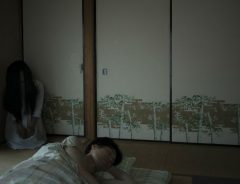- Tags:
- arrest / crime / crime in Japan
Related Article
-

Japanese Apartment Company Offers Silhouette Boyfriend Security System to Protect Women Living Alone
-

Bonsai Techniques Allowed Janitor To Grow Miniature Marijuana Plants In His Apartment
-

Viral Tattoo Photo Lead To Arrest Of Yakuza Boss On The Run For 14 Years
-

Recovering Kyoto Animation arsonist arrested; deemed fit enough to confine and interrogate
-

Stalker Fan Locates Japanese Idol’s Home By Zooming In On Her Eyes, Scouting Scenery In Reflection
-

Police Issue Warning After Viral Game Challenge With Disturbing Demon “Momo” Takes Dark Turn



A few years back, I often met a buddy of mine; a Canadian named Jay. He was a nice guy, a former musician, cool enough. We often had happy-hour drinks.
On one occasion, I was waiting in a pub for Jay to finish work. He walked in a bit cockier than usual, wearing a leather jacket while pushing down a smile.
“What’s up with you?” I asked.
“What do you think?” he asked, pulling on the lapels of his jacket.
“It’s pretty suave, man.”
“Yeah? It was free.”
My interest peaked. “Huh?”
“Yeah, I just put it on and walked out. As long as you act like you own it, nobody ever stops you.”
Expert advice.
The Un-punched Punch Card
Fast-forward half a year, and, per usual, I am running late to work. After all but pushing over staff and customers, I clock-in. A minute early. Nice.
I noticed that Jay’s card was missing. I looked at his room; empty.
Sure enough, all day, no Jay. Around lunchtime, I noticed a new face in Jay's room, talking to his clients. I figured someone had a bit too much the night before and shrugged it off.
Yet, once again, the next day, no Jay. This continued, and the face replacing him, I learned, would be permanent.
I was about to make a missing-persons report one day when a familiar face walked into the pub. This time a little less confidently. He sat down and smiled wanly.
“Where have you been?” I almost shouted.
He looked toward the bar. “Yeah, about that. I was arrested.”
“What for?” I asked, disbelief in my tone.
He ignored my question. “I was in a cell with some other foreigners. And I’ve just been waiting around for the last few weeks.” He rubbed his palms on the bar. “Everyone was very nice. But no one would tell you what was happening.”
“What were you arrested for?” I repeated.
“I stole a book. And I got caught. It turns out they have cameras.”
Fantastic work, John Dillinger.
Being Arrested in Japan
Understandably, being arrested as an ex-pat or a tourist in Japan is an ordeal. For starters, Japan has a conviction rate of nearly 100%. Although this figure is internationally criticized, it is part of the punitive nature of this society and unlikely to change anytime soon.
Police in Japan can detain suspects without a charge for 72 hours. This period can be, and often is, extended to 20 days by a judge.
Although this is not legal advice, if you are arrested in Japan, you can likely expect to be prosecuted. You can ask for a duty attorney. If you don't speak Japanese, you can also ask for an interpreter. You should also be allowed to contact your embassy. For more detailed information, look here or here, for example.
Japanese jails are safe but harsh. Correctional officers are punitive, and prisoners are reportedly punished for innocuous behavior. In the case of Jay, he was mostly left alone and was spoken to through an attorney. He hired a foreign legal expert who consulted with a Japanese legal firm. Eventually, officials from our company had to sign some paperwork for his release. He was immediately fired, which is common following an arrest, but was allowed to receive unemployment insurance for a few months.
Shoplifting seems like a pretty lousy way to finish your career, or if you’re traveling, your trip. However, it certainly isn’t the only way to get into trouble. Here are a few more behaviors to avoid while in Japan.
Ordering Touts on the Street
A Fukuoka business owner was recently arrested for employing touts. Touts, people who solicit businesses to passersby, attempt to lure customers into shops. Anyone familiar with Roppongi will be amazed to learn touting is illegal in Japan. Indeed, the practice is annoyingly common.
While easy to ignore, touting is a behavior worth litigating. Many touts promote adult services, while others actively attempt to recruit young females.
Rush-hour Funeral
In January, a Tokyo man was arrested for leaving his father's remains in a subway bathroom. The man’s divorced father had recently been cremated. The man feared that his mother, the deceased’s ex-wife, would be angry if he took home the ashes.
While this is understandably a crime, it speaks to a growing problem in Japan. With an abundantly gray population, burials and undertaking costs are becoming an increasing burden. Although ashes are usually laid in burial plots, they require maintenance and fees. As families tighten purse strings, the cost of caring for the deceased is a growing concern.
The KDDI Caller
A pensioner was recently arrested for placing nearly 24,000 complaint calls against telephone operator KDDI. The man claimed the telecommunications company had broken its contract with him.
I personally believe this man is a hero. While I stop short of condoning his behavior, it’s incredibly hard to feel sorry for a telecommunication company. Regardless of race, creed, or country, it's true that people everywhere hate their phone companies.
Smuggling Prescriptions
In 2015, the chief communications officer of Toyota was arrested for illegally importing oxycodone. The official instructed her father to send an amount of the potent pain killer medication to her Tokyo hotel. She was not charged but resigned following the incident.
Despite relatively lax attitudes towards alcohol, Japanese society is unforgiving when it comes to illicit substances. While several western countries are easing narcotics laws, Japan has been clamping down.
Although this is not legal advice, do your research before bringing medication to Japan. Regardless of a prescription, officials regularly prosecute foreigners holding narcotic medications such as opiates and stimulants. Adderall and other ADHD medications, for example, are no different.
Looking for your kids
An ex-pat journalist was granted a suspended sentence after being arrested attempting to see his children. The journalist was caught trespassing in the lobby of the apartment complex where his ex’s parents live.
According to the man, he wanted to check whether his two children were safe following hurricane Hagibis. He had not seen his children since he and his wife separated.
While many consider this child abduction, Japan does not have a system of joint custody. It is not uncommon for a single parent to have exclusive care rights. Sadly, foreign parents are particularly vulnerable. Due to misconceptions, they are unlikely to be awarded guardianship and will likely only see their children if allowed by their former partner.